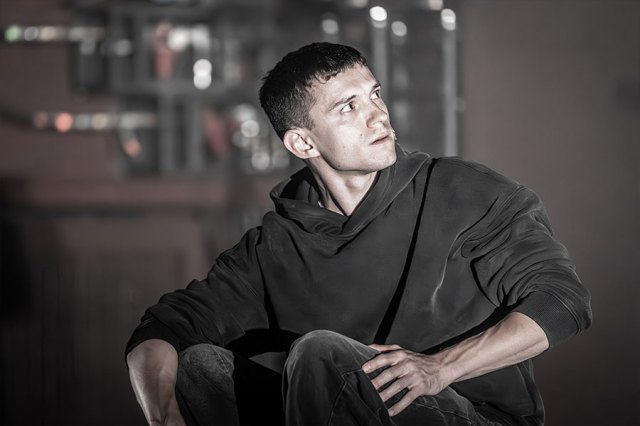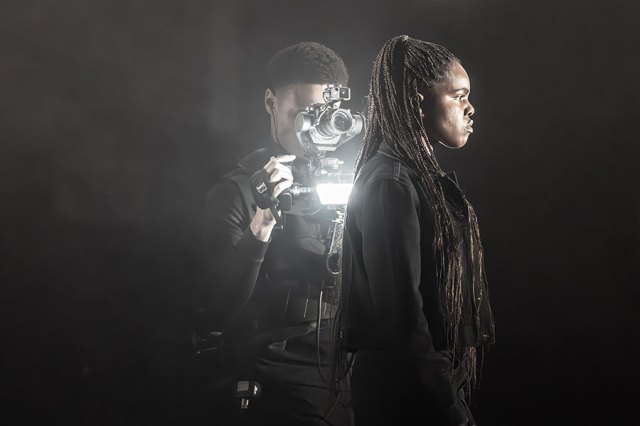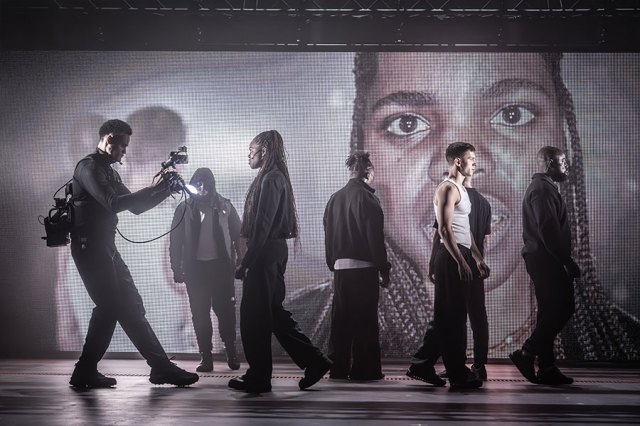Romeo and Juliet review – Tom Holland and Francesca Amewudah-Rivers shine in stripped-back Shakespeare
Jamie Lloyd directs the new revival of Shakespeare’s classic in the West End

Shakespeare meets Spider-Man and the frenzy surrounding this production of a 16th century love story has reached ridiculous 21st century heights. A vicious racist row following the news that Tom Holland, aka the Marvel superhero, was playing opposite a Black Juliet in Francesca Amewudah-Rivers (of Bad Education fame) has now been supplemented by heaving crowds of screaming fans surrounding the theatre.
It’s to director Jamie Lloyd’s immense credit that in the midst of all the madness he has produced a production of Romeo and Juliet of clarity, calm and insight. Mind you, he has form in dealing with superstars: his production of Sunset Boulevard starring Nicole Scherzinger swept all before it.
This production shares the same aesthetic. Soutra Gilmour provides a bare stage, lit in stylish black and white by Jon Clark, with dazzling lights and pitch darkness. Cameras close in on the action, putting the actors faces on giant screens, and Nathan Amzi and Joe Ransom’s video design follows the players round the interior of the theatre; Romeo goes up to the roof when he is banished to Mantua. Michael Mikey ‘J’ Asante underlines the action with an anxious thrum of a musical score.

The actors, in hoodies and Ts, speak and whisper into microphones (sound design by Ben and Max Ringham) and often look out into the auditorium rather than at each other. It’s a groove Lloyd has used to a greater or lesser degree in recent productions of The Seagull, Cyrano and Lucy Prebble’s The Effect, making each seem new to new audiences.
What is so impressive about the style is that rather than getting in the way, it strips things back to its essentials. In Romeo, you may lose the parties and the fights and a sense of a vibrant society in which the lovers are isolated at the core of their warring families, but for all the cuts, you keep the poetry.
In the balcony scene, where Holland and Amewudah-Rivers sit side-by-side, not even touching, it’s hard not to be swept away by the rapture of the words, the way that they carry them along. When she talks about the inconstancy of the moon, she leans into the language, making it sound natural but full of meaning.
Both are wonderfully convincing as young people struck by love; his cheeky grin when he first sees her and his little dance of triumph are touching. Nor does he shy away from Romeo’s tendency to overreact to every situation; he is a hero who lives life at full throttle, always blubbing, always fearing the worst. Amewudah-Rivers’ Juliet, on the other hand, has a boldness that seems to surprise her. As the action darkens, her feeling deepens.

But the other advantage of the pared back approach is how it throws new light on the text – I’d never noticed before how often the lovers have premonitions of death – and reveals different aspects to character. In an impressive stage debut as Mercutio, Joshua-Alexander Williams turns the Queen Mab speech into a terrifying fever dream; Tomiwa Edun makes Juliet’s father a convincing authority figure trying to do his best for his daughter.
Michael Balogun endows the Friar with warmth and moral authority; he gets really angry when Romeo equates banishment to death, and passionate about his mission to stop the young dying needlessly. In the same way, Freema Agyeman’s Nurse (who takes all of Lady Capulet’s lines) is a woman with a sense of humour and a lust for life (and for Holland’s muscled Romeo), trying to do her best. Stereotypes are definitively banished.
In the second act, some of the tension and the authority flags. The camerawork becomes over-intrusive and even this propulsive production can’t quite disguise how much plot Shakespeare suddenly has to cram in. But the freshness of the approach turns the downbeat ending, when the two lovers once more sit side by side, consumed not by love or lust but by a terrible sense of doom, into an anthem for all wasted life.
Lloyd knows his audience; they may have come to marvel at Spider-Man on stage for the first time since he made his debut in Billy Elliot, but they perhaps go out into the night entranced by theatre itself.

















